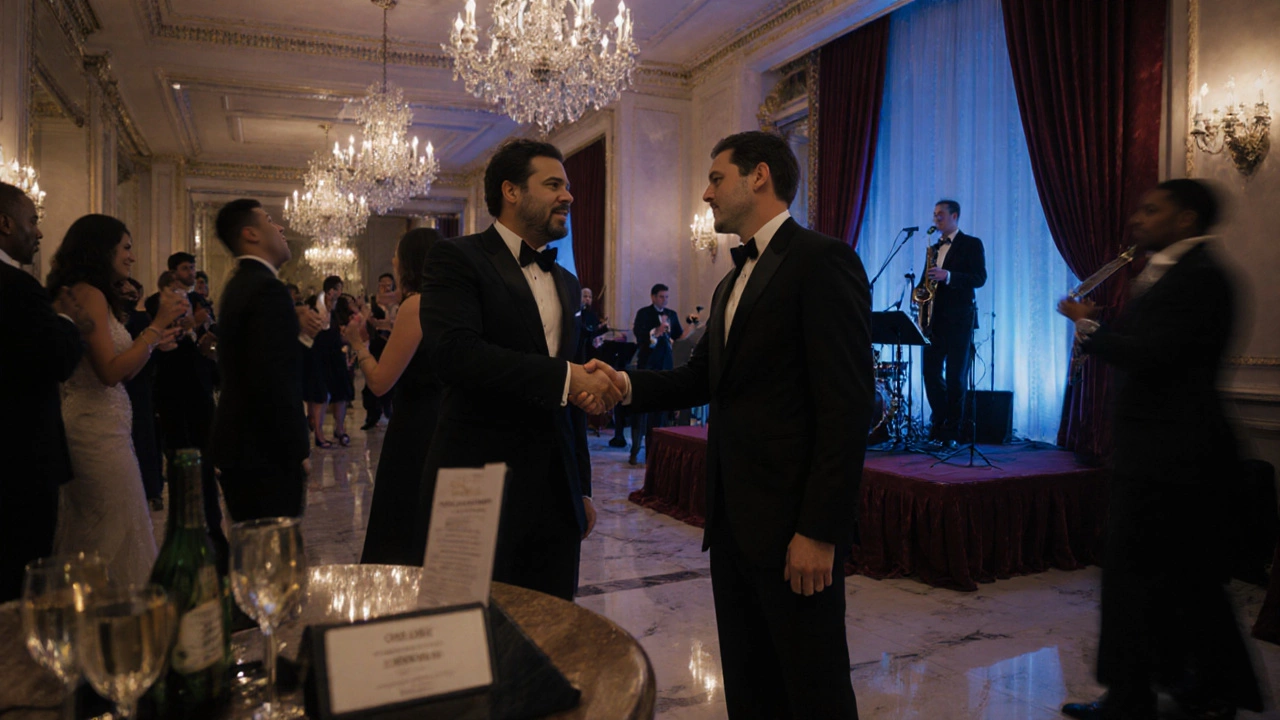Social Club Eligibility Checker
Check Your Social Club Eligibility
Answer these quick questions to see which types of social clubs you might qualify for based on common eligibility requirements.
Your Eligibility Results
Based on your responses, you may be eligible for:
Social club is a community‑focused organization that brings together people with shared interests, ranging from hobby pursuits to professional networking. Most clubs operate on a set of bylaws, and they often ask newcomers to meet specific eligibility criteria before gaining entry.
What Types of Social Clubs Exist?
Not every club is run the same way. Understanding the main categories helps you see where you might fit.
- Private members club: Access is restricted to approved members only. Think of historic gentlemen's clubs in London or exclusive city‑based networking groups.
- Public social club: Anyone can walk in, often for a fee or a one‑time entry ticket. Examples include community dance halls or local pub‑based quiz nights.
- Professional association: These cater to a specific trade or profession, like the Chartered Institute of Marketing or the Royal Society of Chemists.
- Hobby clubs: Focused on a particular pastime - photography, gardening, board games, etc.
- Sports clubs: Offer facilities and leagues for football, cricket, rowing, and the like.
Key Eligibility Factors Across Club Types
Even though each club writes its own rules, most share a handful of common gating points. Below is a quick cheat‑sheet of what you’ll likely encounter.
- Age restriction: Many clubs set a minimum age (often 18) or have senior‑only sessions.
- Residency or locality: Some require you to live within a certain radius or be a student at a nearby university.
- Professional background: For professional associations, a relevant qualification or work experience is usually mandatory.
- Referral or sponsorship: Private members clubs often need a current member to sponsor your application.
- Financial contribution: Membership fees, joining dues, or a one‑off entry charge are standard.
- Dress code and behaviour: Certain venues enforce a smart‑casual or formal dress code, especially during evening events.
- Guest policy: Rules about bringing friends or family vary widely; some clubs allow unlimited guests, others limit it to one per visit.
How to Apply for social club membership
Getting your foot in the door usually follows a predictable path, no matter the club’s style.
- Research the club: Visit the website, read the charter, and check out recent event photos. This tells you whether the culture clicks with your personality.
- Complete the membership application: Most clubs use an online form or a printable PDF. Fill in personal details, outline your interests, and be honest about any affiliations.
- Provide supporting documents: Proof of address, a copy of your ID, or a professional licence may be needed.
- Attend an interview or trial night: Private members clubs often schedule a brief chat with the membership committee; hobby clubs might ask you to join a trial session.
- Pay the required fees: Fees can be a one‑off joining sum, an annual subscription, or a combination of both.
- Wait for approval: Some clubs respond within days, others take weeks, especially if a sponsor must review the application.

Common Pitfalls and How to Avoid Them
Even a well‑prepared applicant can stumble. Here are the most frequent mistakes and quick fixes.
- Ignoring the dress code: Show up in jeans when the club expects a blazer, and you’ll likely be turned away. Always check the dress guidelines before your first visit.
- Skipping the guest policy: Bringing a large group without prior approval can breach rules and annoy existing members.
- Under‑estimating fees: Some clubs hide additional costs like event tickets or facility rentals. Ask for a full fee breakdown up front.
- Missing the residency clause: If you move outside the allowed area, your membership may be revoked. Keep your address updated with the club’s admin team.
- Failing to engage: Membership is more than a card; clubs expect participation. Attend meetings, volunteer for committees, and you’ll feel welcomed faster.
Comparison of Popular Club Types
| Club Type | Access | Typical Fees | Eligibility Focus | Typical Dress Code |
|---|---|---|---|---|
| Private members club | Invitation or sponsor required | £150‑£500 annual + joining fee | Social standing, referrals | Smart‑casual or formal |
| Public social club | Open to anyone (pay‑as‑you‑go) | £5‑£20 per event | Age, residency only | Casual |
| Professional association | Qualified professionals | £100‑£300 yearly | Relevant qualifications | Business‑formal |
| Hobby club | Open, sometimes limited slots | £10‑£50 annual | Interest in the hobby | Casual |
| Sports club | Membership or pay‑per‑session | £50‑£200 yearly | Fitness level, age | Sportswear |

Real‑World Examples from the UK
Seeing how clubs operate on the ground can demystify the process.
- The Bristol City Club: A private members club housed in a historic building. Applicants must be sponsored by an existing member and pay a £300 joining fee. Dress code is smart‑casual for weekdays, formal for Thursday wine‑tasting evenings.
- London Community Dance Hall: A public social club offering weekend dances for a £10 entry. No ID required beyond a simple age check, and anyone can bring a guest.
- Royal Society of Chemistry (RSC): A professional association for chemists. Membership requires a recognised chemistry degree and an annual fee of £150. Events are business‑formal.
Quick Checklist Before You Apply
- Confirm age and residency requirements.
- Read the club charter for dress code and guest policy.
- Gather ID, proof of address, and any professional credentials.
- Identify a current member who can act as sponsor (if needed).
- Calculate total costs, including hidden fees for events.
- Prepare a brief statement of why you want to join.
Next Steps After Joining
Landing a membership is just the start. To get the most out of your new social club, try these actions:
- Attend the inaugural welcome meeting - it’s the easiest way to meet existing members.
- Volunteer for a committee or event; it shows commitment and speeds up integration.
- Respect the club’s rules, especially dress code and guest limits, to avoid early dismissal.
- Use the club’s network: ask fellow members for introductions or advice related to your interests.
- Provide feedback after a few months - many clubs adjust policies based on member input.
Can I walk into a private members club without membership?
Generally no. Private clubs require you to be a member or an approved guest. Some clubs host public events where non‑members can attend, but daily access remains restricted.
Do I need to pay a fee to join a public social club?
Most public clubs charge per event or a modest annual fee. The cost is usually disclosed on their website and is far lower than private club dues.
What documents are usually required for a membership application?
A valid photo ID, proof of address (utility bill or council tax bill), and, for professional associations, a copy of your qualification or licence. Some clubs also ask for a photograph for the member directory.
How long does the approval process typically take?
It varies: public clubs often approve instantly; private members clubs may take a few weeks, especially if references are needed. Professional bodies can take up to a month.
Can I bring a guest to any club event?
Guest policies differ. Some clubs allow unlimited guests for special events, while others limit you to one guest per visit or require you to pre‑register the guest’s details.
